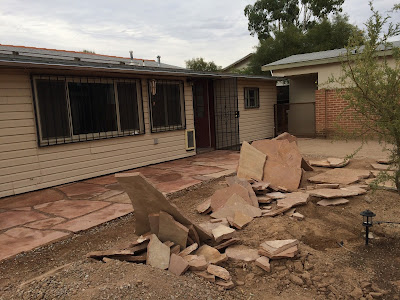Oh,
lucky me! I live in Tucson in the winter months. It’s warm and sunny. I sit in the back yard,
soaking up sun like a lizard, while folks in Kansas are shivering in their
boots.
But
wait, there’s a down side. On January 31 I began sneezing. By late afternoon my
nose was dripping constantly. Nope, it wasn’t the flu as I feared. Instead, as
Grant quickly determined, the African sumac has begun opening its tiny blossoms.
African
sumac is one of the few trees that thrive here in the Sonoran desert, and for
that reason it is widely planted in Tucson. It is evergreen and has thin,
blade-shaped leaves. It also produces tiny blossoms by the thousands.
There
are three of these trees in our yard, all of them very close to the casita we
call home. They aren’t very pretty here, with unruly branches going off in
different directions.
I’m
terribly allergic to the trees’ pollen, enough so that I wondered whether I’d
be just as well off in the bitterly cold Kansas winter. Fortunately, I
discovered that an antihistamine stops almost all of my allergy symptoms. So I’m
still here, basking in the sun and trying to decide what to do with a generous
gift from my book club friend.
They're organic and grew in someone's back yard. Deciding how to use the lemons is a problem it will be fun to solve, with the promise of tasty treats in
the warm Tucson winter weather.
Copyright
2015 by Shirley Domer

















